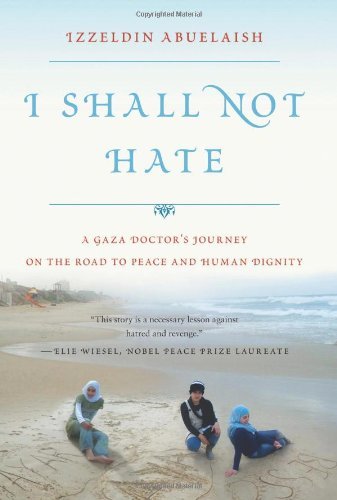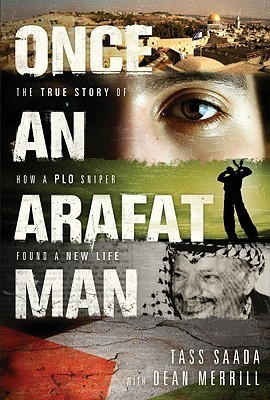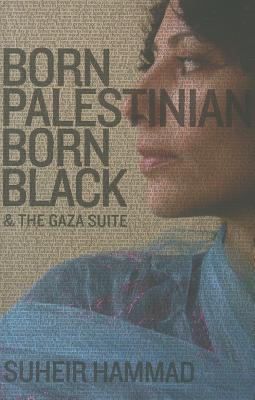
I Shall Not Hate: A Gaza Doctor's Journey on the Road to Peace and Human Dignity
Book Description
A doctor in the heart of Gaza, where hope battles despair daily, Izzeldin Abuelaish's poignant journey reveals the profound strength of the human spirit amidst chaos. Striving for peace while witnessing unimaginable loss, he transcends the limitations of conflict with a message of dignity and resilience. Each page pulses with raw emotion, compelling the reader to confront the true cost of war and the unyielding quest for understanding. Can love and compassion rise from the ashes of tragedy, lighting the way to a brighter future?
Quick Book Summary
"I Shall Not Hate" is the powerful memoir of Dr. Izzeldin Abuelaish, a Palestinian doctor from Gaza whose life has been marked by both tragedy and hope. Living and working in the midst of the Israeli-Palestinian conflict, Abuelaish endures unimaginable loss—including the deaths of three daughters during an Israeli attack. Despite the tragedy, he rejects hatred and vengeance, advocating instead for dialogue and understanding. Through his story, Abuelaish illustrates the impact of war on ordinary lives while offering a message of resilience and forgiveness. His unwavering dedication to peace and dignity, even amid deep personal suffering, inspires a vision of reconciliation and shared humanity beyond borders.
Summary of Key Ideas
Table of Contents
Enduring Loss and Maintaining Humanity
Abuelaish’s childhood in the Jabalia refugee camp in Gaza is defined by poverty and occupation, yet he is shaped by a loving family and a passion for education. From a young age, he witnesses the continual strife that marks Palestinian life—restrictions, lack of opportunity, and violence. Despite odds that drive many to despair, Abuelaish excels academically, guided by his mother’s faith and encouragement. His drive to study medicine is motivated by the suffering he witnesses daily and a desire to alleviate pain rather than perpetuate cycles of hostility.
Bridging Divides Through Medicine
As a physician specializing in gynecology, Abuelaish straddles two worlds. He often works in Israeli hospitals, treating both Israeli and Palestinian patients with the same compassion and expertise. This unique experience allows him to see the shared vulnerabilities of both communities. By collaborating with Israeli colleagues, he builds bridges of understanding and friendship amidst widespread mistrust and enmity. Medicine, in his narrative, emerges not just as a means of healing bodies, but of forging human connections that transcend entrenched divisions.
Forgiveness Over Vengeance
The defining tragedy of Abuelaish’s life comes during the 2009 Israeli assault on Gaza, when three of his daughters and a niece are killed by a shell that strikes his home. His overwhelming grief is palpable, yet he resists the temptation to hate or to call for revenge. Instead, he makes a plea for peace live on Israeli television, refusing to dehumanize the other side. Abuelaish’s personal suffering thus becomes a catalyst for his public advocacy, modeling how forgiveness and dignity can survive even the deepest wounds.
The Cost of War on Innocent Lives
Throughout his memoir, Abuelaish bears witness to the daily reality of war in Gaza: the loss of loved ones, homes, and livelihoods. He emphasizes the innocence of civilians—especially children—who bear the brunt of unending conflict. His perspective exposes the true human cost of political failure and military violence, compelling readers to consider the profound injustices and trauma experienced by ordinary people on both sides of the divide. Yet, he resists reducing individuals to mere victims, honoring their dreams and humanity.
Peace and Reconciliation as a Lifelong Mission
The memoir ultimately urges not just empathy, but action. Abuelaish calls for reconciliation, mutual recognition, and investment in peacebuilding. He reiterates his belief that hatred is a choice—and so is hope. By channeling his anguish into constructive pursuits such as founding the Daughters for Life Foundation, he exemplifies how loss can be transformed into lasting commitments to education and understanding. Through his journey, he leaves readers with a conviction that peace is possible when dignity conquers despair.
Download This Summary
Get a free PDF of this summary instantly — no email required.





